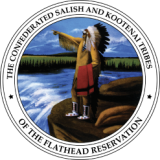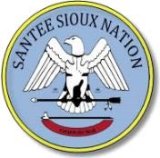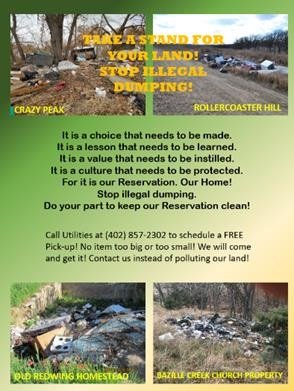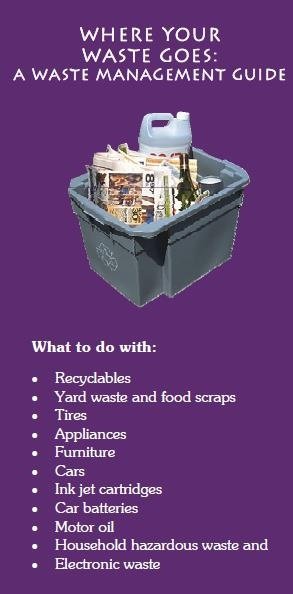Tribes Training Tribes on Sustainable Waste Management Programs: Confederated Salish and Kootenai Tribes and Santee Sioux Nation
On this page:
- Matched Tribes
- Raising Awareness and Engaging Community Members to Develop Practical Solutions
- Contacts
Matched Tribes
Confederated Salish and Kootenai Tribes (Mentee)

The Confederated Salish and Kootenai Tribes live on the Flathead Indian Reservation in western Montana, spanning four counties, with a patchwork of Tribal and non-Tribal members. MaryRose Morigeau, CSKT Tribal Response Program Manager, requested technical assistance on solid waste burning ordinances and enforcement options, including ordinance language, review, and examples of good enforcement and outreach efforts to prevent open dumping from occurring. While the CSKT had solid waste codes in place, they did not have effective regulations to implement and enforce these codes. In 2022, under EPA’s National Tribal Waste Management Peer Matching Program, the CSKT matched with the Santee Sioux Nation.
Santee Sioux Nation (Mentor)

The Santee Sioux Nation, situated along the Missouri River in northern Nebraska, also experienced issues around illegal dumping. In addition to working with their local police department, the Santee Sioux Nation conducted public outreach and education on pollution prevention and illegal dumping. Page Hingst, Santee Sioux Nation Tribal Response Program Coordinator, developed Santee Sioux Nation's Solid Waste Codes and organized numerous public outreach events and strategies to prevent illegal dumping, so Page had several ideas and examples to offer the CSKT.
Raising Awareness and Engaging Community Members to Develop Practical Solutions
In February 2022, Page Hingst (Santee Sioux Nation) and MaryRose Morigeau met to discuss CSKT’s requested needs for technical assistance. CSKT sought effective strategies to prevent illegal dumping, and Santee Sioux Nation had the practical experience and expertise to offer tangible solutions. Through conducting outreach with the Santee Sioux Nation, Page learned that many Tribal members were not aware of the negative impacts of littering. Through a survey, Page found three key reasons people were dumping illegally:
- The operating hours of the transfer station were inconvenient.
- The transfer station was charging a fee.
- Starting landfills anywhere on the land was an ingrained behavior passed down from several generations of Tribal members.
To ease the burden of individual trips to the transfer station, the Santee Sioux Nation began paying utility companies to do a free trash pickup every other Friday, which has been successful for almost four years. To discourage littering and illegal dumping, the Santee Sioux Nation found effective strategies to educate Tribal members on the negative impacts of littering, including how long it takes for different materials to decompose. Based on their success, Page encouraged the CSKT to conduct a survey to find out why people are dumping illegally.
The Santee Sioux Nation offered several public outreach strategies and examples for the CSKT to consider. The Santee Sioux Nation shared example codes; illegal dumping brochures, posters, flyers, and signs; public outreach materials on littering, waste management, and composting; a solid waste roadmap; presentation slides for community and kid education events; and various other templates and examples for the CSKT to use.
CONTACTS
Tonya Barnett, Co-Team Leader
EPA Office of Resource Conservation and Recovery
Federal, State and Tribal Programs Branch
Tribal Program Team
[email protected]
(202) 566-0463
Page Hingst, Tribal Response Program Coordinator
Santee Sioux Nation
[email protected]
(402) 857-3347
MaryRose Morigeau, Tribal Response Program Manager
Confederated Salish and Kootenai Tribes
[email protected]
(406) 883-2888


